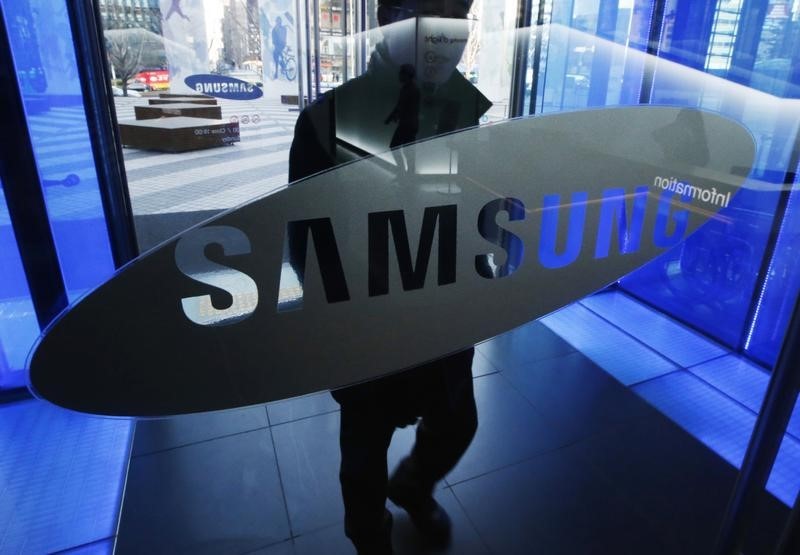By Se Young Lee and Choonsik Yoo
SEOUL (Reuters) - Tech giant Samsung Electronics gave a big boost on Wednesday to Seoul's ambitions to become a global hub for the offshore yuan business, saying it was preparing to start trading the Chinese currency directly with the South Korean won.
The news came as the South Korean government announced that it hoped to sign a final free trade agreement with China within the first half of the year, in a further sign of strengthening relations between the countries.
South Korea became the third country in the world to begin direct trading of the yuan for a local currency in December under the aim of grabbing a larger share of the growing business opportunities involving the yuan outside China.
"This is an encouraging development given that one of the weaknesses on the market was the low demand or supply from the corporate sector," said Song In-chang, head of the finance ministry's international finance bureau.
"I hope Samsung's plan to participate in the market will influence other big companies also to join," he added.
Samsung said in a statement it was "looking into starting won-yuan direct trading". It did not elaborate, but traders said such a move would be a big boost for the market, which until now has been in operation led by banks designated as market-makers.
"The fact that there's real demand and supply for commercial purposes carries a big significance even though the amount is small," said one currency dealer at a local bank.
Over the long term, the yuan-won rate closely tracks the calculated price from each currency's value against the U.S. dollar, but companies can save costs and reduce the risk from exchange-range volatility in the meantime.
South Korea has been encouraging companies trading with China to settle transactions with the yuan or the won instead of the U.S. dollar, but actual use of the local currencies in trade deals remains very low.
It is not clear how much trading volume Samsung can generate on its own. The company uses the currency market to settle direct transactions between its headquarters and its foreign subsidiaries.
Separately, South Korea said it and China had completed the "initializing" process on a free trade agreement and were aiming to formally sign the pact within the first half of this year, which would sharply reduce barriers to commerce and investment.
Leaders of the two countries said in November that they had made substantial progress in negotiations.
South Korea ran a $55 billion trade surplus with China in 2014. According to the Bank of Korea, 3.6 percent of South Korean exports to China and 2.3 percent of imports were settled with the won or the yuan during the fourth quarter.
The deal comes as South Korea has yet to decide whether to join the United States-initiated Trans-Pacific Partnership pact, aimed at slashing trade barriers between a dozen countries.
